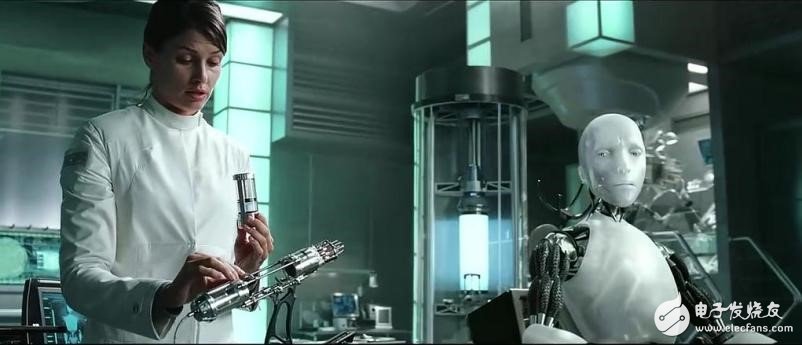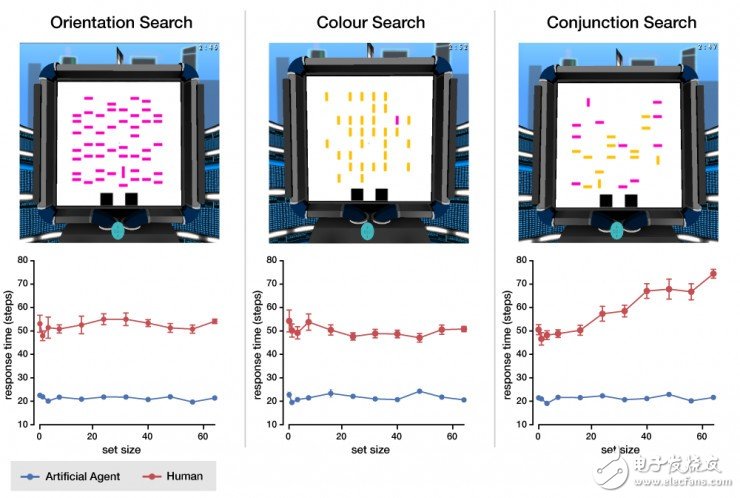"I, Robot" is the most important collection of short and medium sci-fi novels in the life of the famous American science fiction writer Isaac Asimov. The collection of novels depicts that the level of intelligence of the robot has finally “standing between human beings and destruction†after undergoing a step-by-step development. More importantly, there are not only robots in the novel, but also “Robot Psychologist†Susan Kevin.

In actual work, robots will have a variety of unexpected situations - this is also the responsibility of "robot psychologists": interestingly, what she does is not to eliminate "machine failure", but to understand and solve The "psychological problem" of the robot.
Back to reality, machine psychology can be regarded as a new discipline corresponding to human psychology. It can make people understand the psychology of machines, and it is more effective and convenient to interact with machines. Ultimately, robots can better understand and serve human beings.
Although there is no such profession at this stage, with the development of AI, machine psychology must become an important branch of psychology. Why?
AI and psychology seem to be a blind date, in fact, it refers to the marriage.
1. Machine psychologist is the "flipper" of AI development
When it comes to AI, people always emphasize the diversity of big data and its computational power is more powerful, more accurate and more efficient, but in fact AI essentially detonates the fundamental reason of this era, because the interaction has produced the fundamental The change.
Human-computer interaction has changed from "materialism" to "idealism", from keyboards, mice, etc. to speech, touch, and even brain waves, that is, human consciousness. In this way, people have a fear, a machine with very powerful but uncontrollable fear. So the relationship between people and machines, the first thing we have to do is to eliminate this barrier, let the machine psychologists communicate with the masses and machines, on the one hand, let more people accept the machine better.
Thousands of years ago, humans tamed the horses, but the real beginning of mastering the horses was because of the invention of the ankles. What are the ankles? It is the thing that is placed on the horse and is used for people to step on. It can even be said that the ankle affects the historical process of the entire human race, only because the horse is used as a medium to change the relationship of human-computer interaction.
The machine psychologist is playing the role of the horse to some extent, and the interaction between man and machine becomes smoother. From a machine perspective, if someone understands how they learn and act on this information, they are much less likely to make mistakes. Or, when they make a mistake, they can make a reasonable explanation instead of causing public panic.
Facebook's July 2017 2017-based Smart Dialogue Robot project, which has caused widespread controversy "developing humans that cannot be understood", has been shut down because researchers are worried about "out of control."

Although it sounds terrible, it seems to be just garbled, but no one has explained it.
2. Psychology is the intervention of artificial intelligence
Last year, Apple recruited job seekers to understand psychology in addition to knowing computers. The reason is that when people communicate with Siri, they don't consciously talk to her, but Siri is not smart enough to be a counselor. To some extent, this compound talent is also the initial version of the machine psychologist. Some people lament that this cross-border is a bit big. In fact, the combination of computer and psychology is not a product of the development of the times. They have come down from the beginning of the development of artificial intelligence.
Sima He, the earliest artificial intelligence scholar in the United States (the Chinese name of Herbert Simon), is a psychologist who combined cognitive psychology with computer science to create a new discipline of artificial intelligence. "Father of artificial intelligence", and in terms of contribution, "cognitive psychology" is called "cognac".
As early as 1955, he successfully developed "logical reasoners" and used machines for manual reasoning. Later, he developed a "general solver" to continuously achieve feedback by judging the distance between the current state and the target state.
This feedback mechanism is based on the human way of thinking and provides concrete application examples for computer simulation of human thinking activities. According to Sima He, artificial intelligence is the kind of behavior that a computer displays if it is expressed by people, such as cognition.
Machine psychologist: is the captain and sailor
It is necessary to point the direction and work hard.
1. The difference between machine cognition and human cognition is the direction
Before we talk about machine cognition, we can first consider, for us humans, what does it mean to understand other people?
As human beings, we communicate daily with other humans whose potential characteristics, underlying conditions, and computational processes are almost completely inaccessible. We will not try to estimate the activity of other people's neurons, infer how their prefrontal cortex is connected, nor plan to interact with other people's hippocampus maps, but we understand that others' functions are excellent.
Cognitive psychology believes that our social reasoning depends on other people's high-level models. The abstract concepts involved in these models do not describe the detailed physical mechanisms underlying the observed behavior; instead, we understand the psychological state of others, such as Their desires, beliefs and intentions. This is also the so-called theory of mind.
How does the machine recognize and understand other individuals?
DeepMind's latest research proposes "Machine Theory of Mind", a platform created by researchers called Psychlab, and a neural network called ToMnet of mental theory, which has been proved to be mentally intelligent through a series of experiments.

Differences in response time between humans and agents performing visual search tasks on Psychlab
In all three cases, humans have different reaction times, while agents have the same reaction time. This shows that when the identified things are disturbing, the attention of the person will be dispersed, and the attention of the machine will be more single. Therefore, if we say that robots have mental intelligence, and human cognition is not small, it is this obvious difference that points out a new direction for the development of machine cognitive psychology.
Din Rail With Ups,New Design Din Rai ,35/15 Din Rai,Din Rai Switching Power
Wonke Electric CO.,Ltd. , https://www.wkdq-electric.com